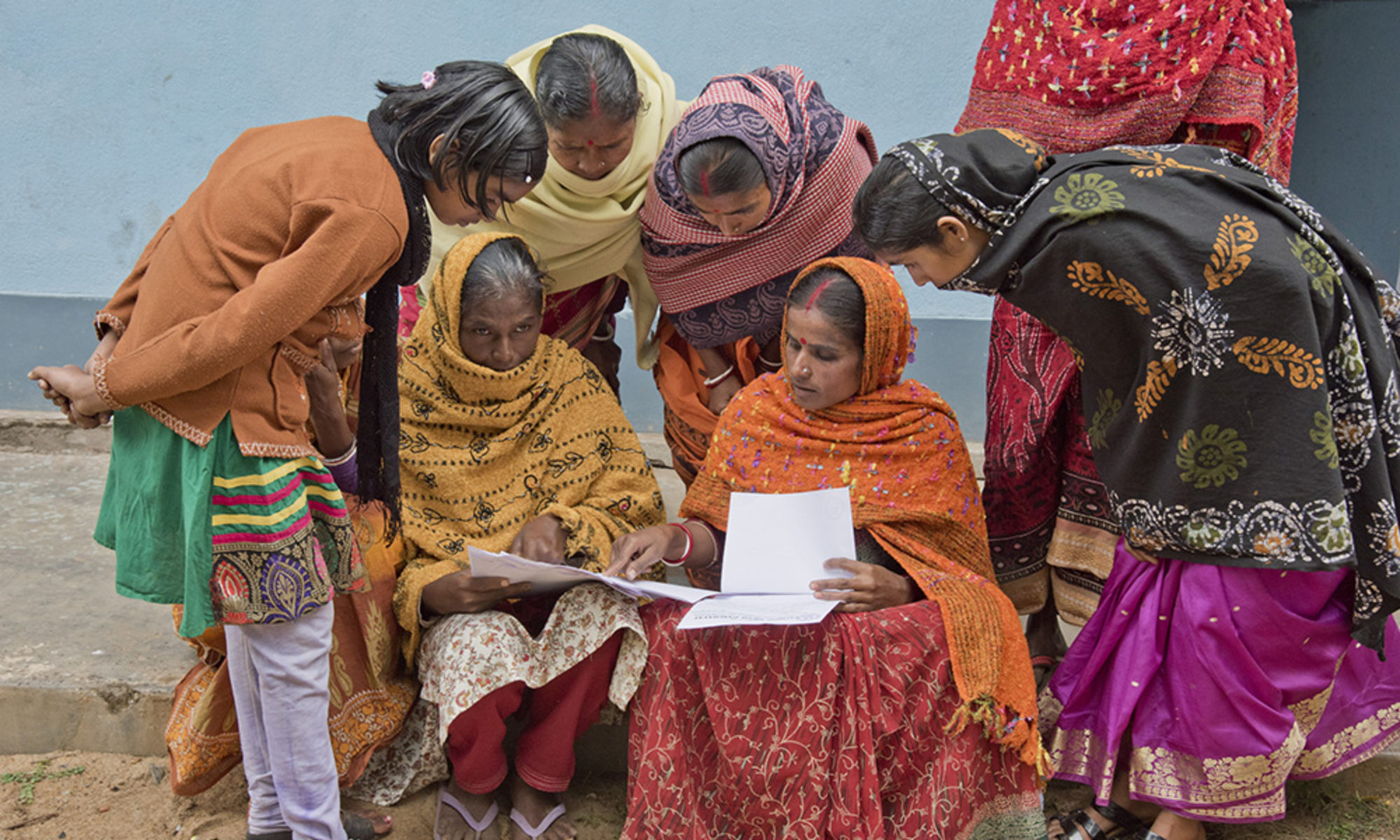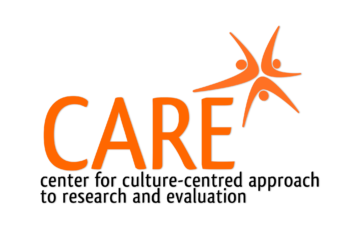CARE White Paper Issue 8
Structural constraints, voice infrastructures, and mental health among low-wage migrant workers in Singapore: Solutions for addressing COVID19
Mohan J. Dutta Director, Center for Culture-centered Approach to Research & Evaluation, Massey University

Foreign migrant workers washing luxury condo in Singapore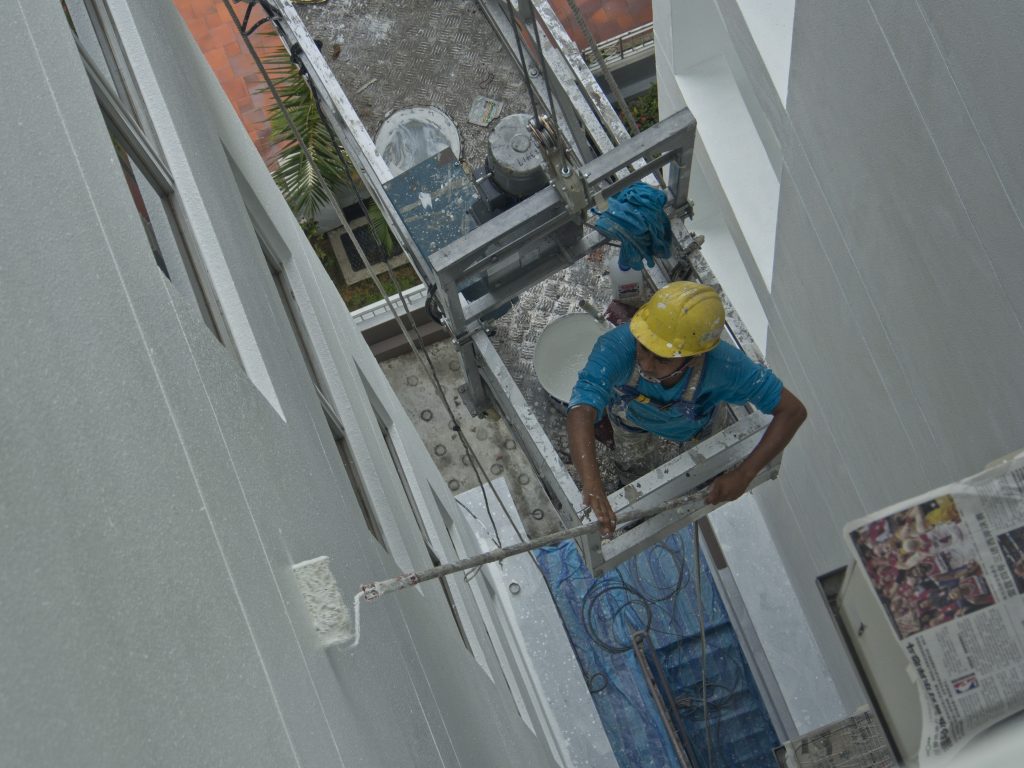
Foreign migrant workers painting luxury condo in Singapore 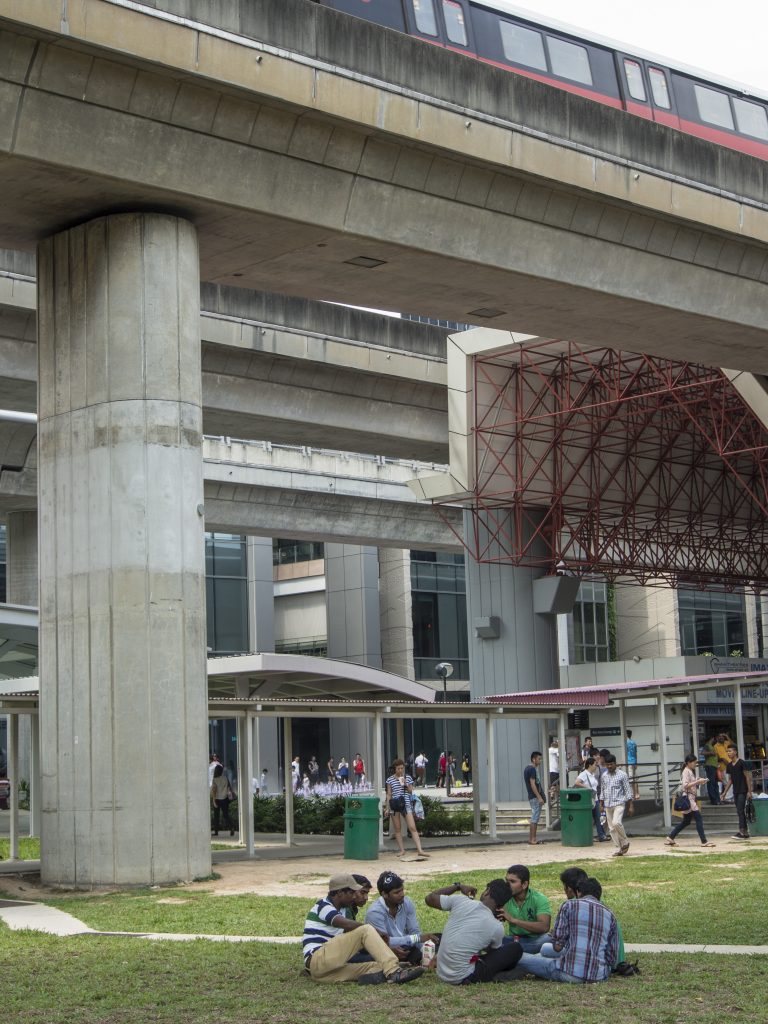
Foreign migrant workers relaxing on their Sunday day off in Singapore
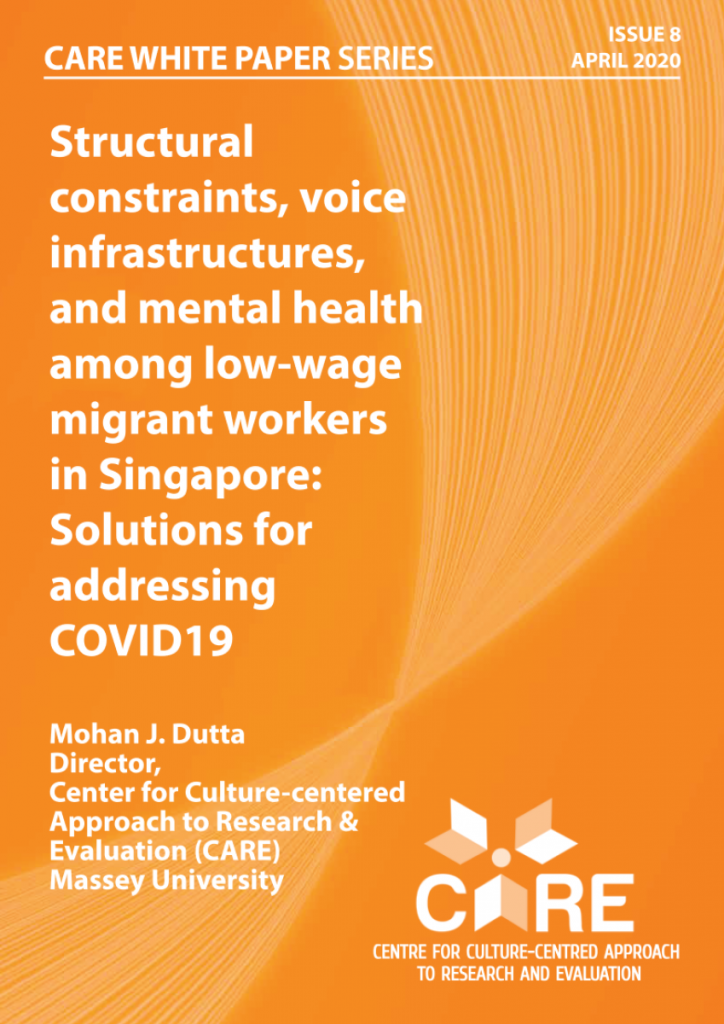
Responding to the continued rise in COVID19 clusters in migrant worker dormitories in Singapore, and building on earlier research (See CARE White paper Issue 6), this White Paper reports on the findings of a survey conducted with low-wage migrant workers in Singapore. In addition to the poor living conditions highlighted earlier, the structural constraints on preventive behavior are explored. Drawing on the key tenets of the culture-centered approach, the research highlights the powerful role of structural factors such as arrangements of dormitories, the absence of hygienic conditions because of the structures, the lack of clean toilets, pressure on limited toilets, and scarcity of water. The findings highlight the challenges to mental health and wellbeing experienced by the workers. Moreover, it points to the absence of voice infrastructures, and the ways in which this absence contributes to conditions that are rife for the pandemic. Solutions for structural solutions and voice democracy are offered.
CARE White Paper Issue 7
Culture-centered community-led testing
Gayle Moana – Johnson, CARE – Community Research Assistant and Mohan J. Dutta, Director,Center for Culture – centered Approach to Research & Evaluation Massey University
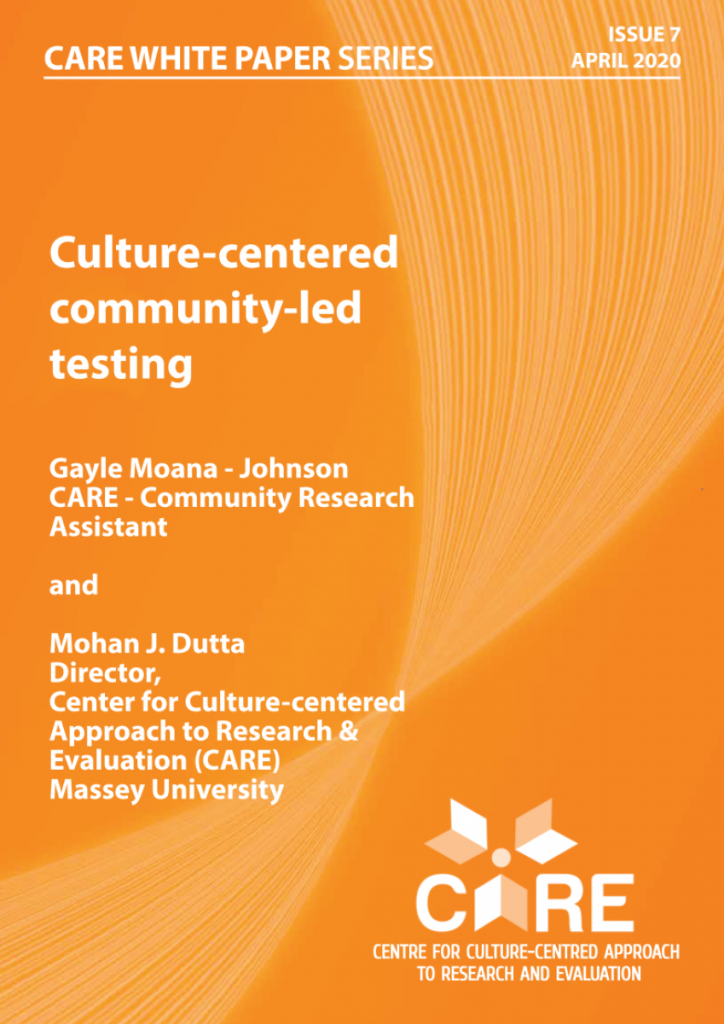
In this white paper, the community advisory group in Highbury, working with community researcher Gayle Moana-Johnson, developed the key conceptual guidelines for culture-centered community-grounded testing. The white paper highlights the key concepts anchoring the partnership between the community advisory group and the clinical team at HHPNZ
This white paper outlines the key principles of culture-centered community-led testing that are voiced by the advisory group of community members in Highbury, anchored in the principle of representing the most “in-need” members of the community (referred in the rest of this white paper as the “margins of the margins”). The key ideas in this white paper are developed as anchoring principles for the partnership between the community advisory group and the Health Hub Project New Zealand (HHPNZ).
CARE White Paper Issue 6:
Infrastructures of housing and food for low-wage migrant workers in Singapore
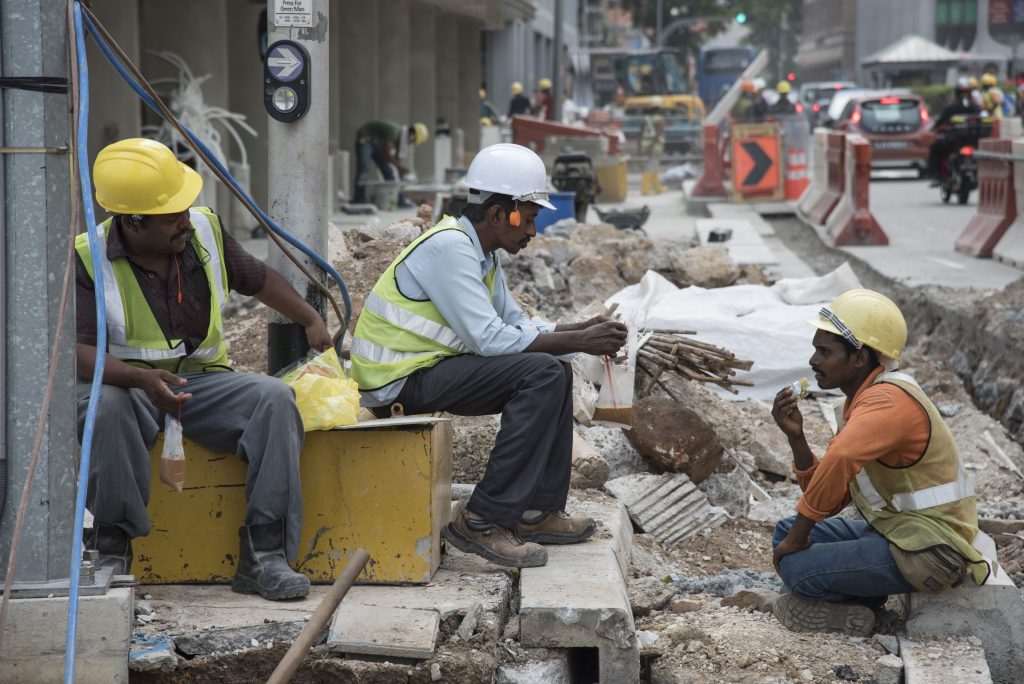
Courtesy Julio Etchart as part of CARE’s “Respect Migrant Rights” campaign in Singapore
This white paper responds to the high prevalence of COVID-19 in clusters associated with dormitories that house low-wage migrant workers in Singapore. Based on an ongoing digital ethnography (45 hours of participant observation) conducted in spaces where low-wage migrant workers participate online, 43 interviews conducted between April 7 2020 and April 13, 2020, inputs from advisory group of lowwage migrant workers, and drawing on 157 in-depth interviews conducted since 2013, the following key challenges with housing and food, as well as corresponding key solutions are proposed. Each of the key challenges is presented, alongside specific recommendations for solutions. The participants for the interviews were identified using snowball sampling. The interviews were conducted in Bengali, mix of Bengali and English, or English, depending on the level of comfort of the participant. Given the sense of anxiety expressed by the participants (see theme 7 below), the white paper does not disclose the locations. Also, it does not separate the different forms of arrangements to protect the confidentiality of the participants. The excerpts from the interviews are truncated to protect the identity of the participants. One of the limitations of the current study is the small sample size of the COVID19- specific data gathered between the April 7 and April 13 timeframe; however, the depth of the narratives offer rich contextually-embedded insights into the challenges being experienced by low-wage migrant workers and the potential insights they envision. The CARE research team is currently conducting a follow-up quantitative study exploring everyday experiences of health and wellbeing among low-wage migrant workers.
CARE White Paper Issue 5: April 2020
Challenges To Seeking Health Information And Healthcare Among Low Income Communities Amid COVID19
by Mohan J. Dutta Director, Center for Culture-centered Approach to Research & Evaluation, Massey University
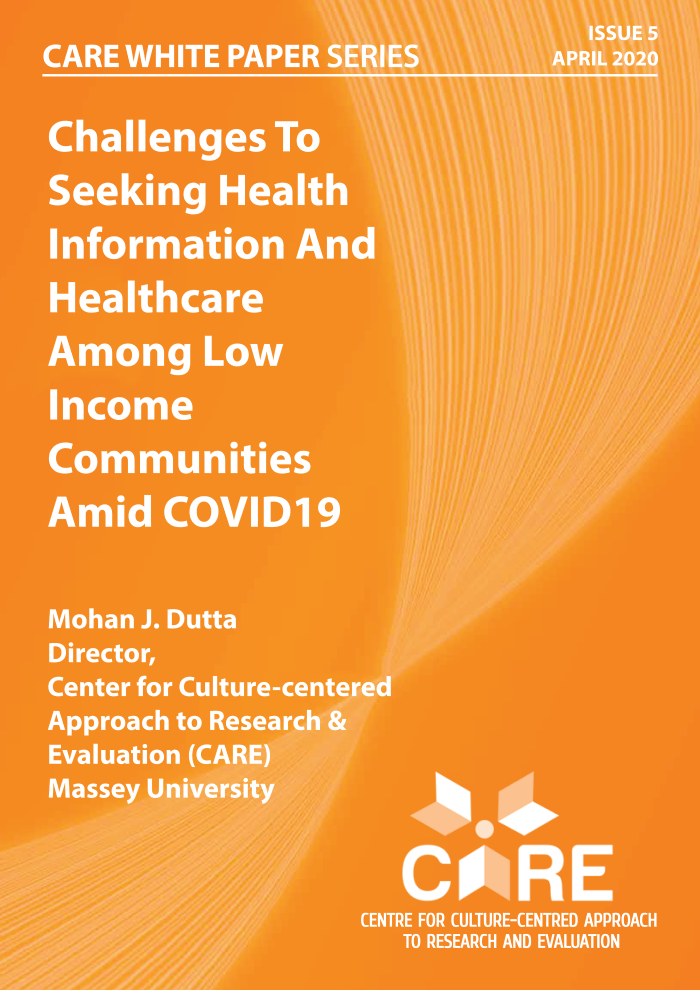
The findings reported here are drawn from our advisory group of community members that represent the community in Highbury. The advisory group has been built on the basis of purposive sampling, ensuring that the voices of the “margins of the margins” are represented. The advisory group meets face-to-face as well as on a digital platform. The group is facilitated by two community researchers, recruited from within the advisory group and trained in the fundamentals of interview-based research.
CARE White Paper Issue 4: March 2020
COVID-19 Wage Subsidy Package
Christine Elers (Ngā Hau), Junior Research Officer, Center for Culture-centered Approach to Research & Evaluation (CARE)
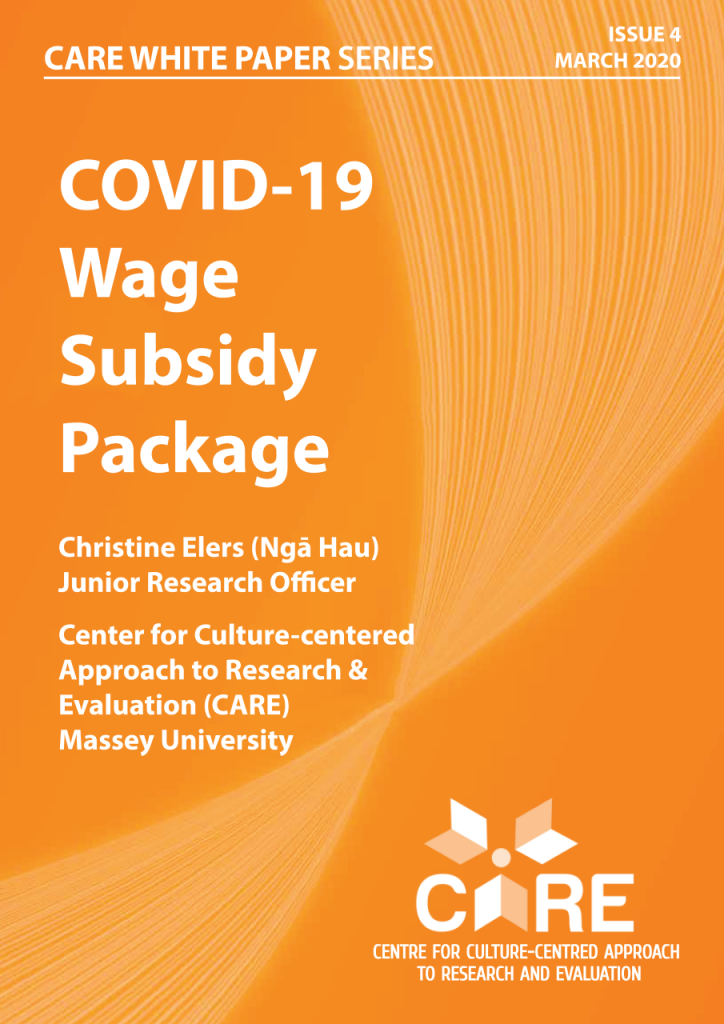
We are writing about the government’s covid-19 wage subsidy package, in particular:
- the sick leave payment due to be folded into the modified covid-19 wage subsidy package; and
- the online publication outlining the names of all employers who have received the covid-19 wage subsidy package.
CARE White Paper: Issue 3 April 2020
The limits of the “Singapore Model” in COVID-19 response: Why authoritarian governmentality is not the solution
Mohan J. Dutta, Director, Center for Culture-centered Approach to Research and Evaluation (CARE)
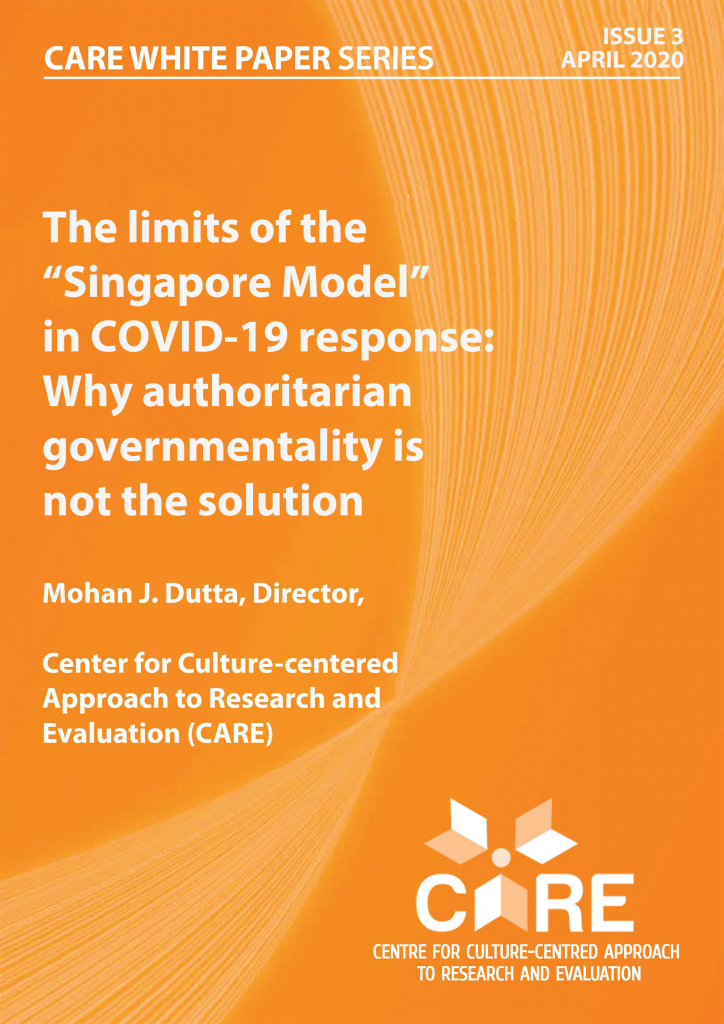
A wide range of models have been proposed as frameworks for responding to Covid-19. These models highlight
the significance of health communication in preventing the spread of COVID19 as well as in effectively responding to it. The positioning of specific models as solutions to COVID-19 is tied to the creation of actual strategies of response
globally. One such model that has been rapidly disseminated in policy discourse and circulated in articulations of COVID response is the “Singapore Model.” Drawing on the key tenets of the CCA, this paper will examine the premise of the “Singapore Model” as a framework for global health.
The white paper draws on the key tenets of the CCA to examine Singapore’s pandemic response. The CCA foregrounds the interplays of culture, structure, and agency in the constructions of health meanings and the development of health solutions.
Structure refers to the political
economy of organizing resources in society. Culture reflects the community norms, community-based meanings, and community values guiding relational negotiations of health and wellbeing. Agency reflects the relational and collective capacities of communities to develop solutions.
CARE White Paper: Issue 2 March 2020
A culture-centered approach to pandemic response: Voice, Universal Infrastructure, and Equality
Mohan J. Dutta, Director, Center for Culture-centered Approach to Research and Evaluation (CARE)
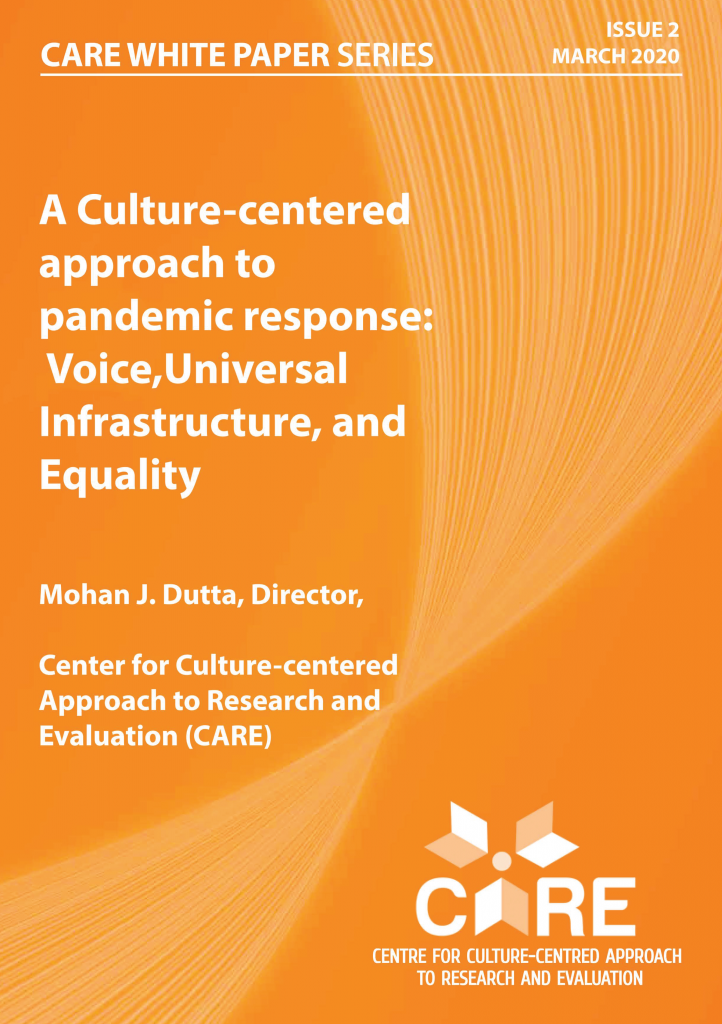
The global nodes of spread of Covid-19 highlight the significance of health communication in preventing the spread as well as in effectively responding to it. On January 30, 2020, the World Health Organization (WHO) declared the outbreak as a Public Health Emergency of International Concern. Noting the aggressive movement of the virus across countries, with eight countries reporting more than 1000 cases of COVID-19, the WHO declared COVID-19 as a pandemic. Drawing on critical analyses of the pandemic and crises response literatures as well as building on the experiences of CARE in developing culture-centered community grounded interventions,this white paper outlines the culture-centered approach to pandemic response, specifically directed at offering culturecentered guidelines for effective communication. The culture-centered approach foregrounds the interplays of culture, structure, and agency in the constructions of health meanings and the development of health solutions
